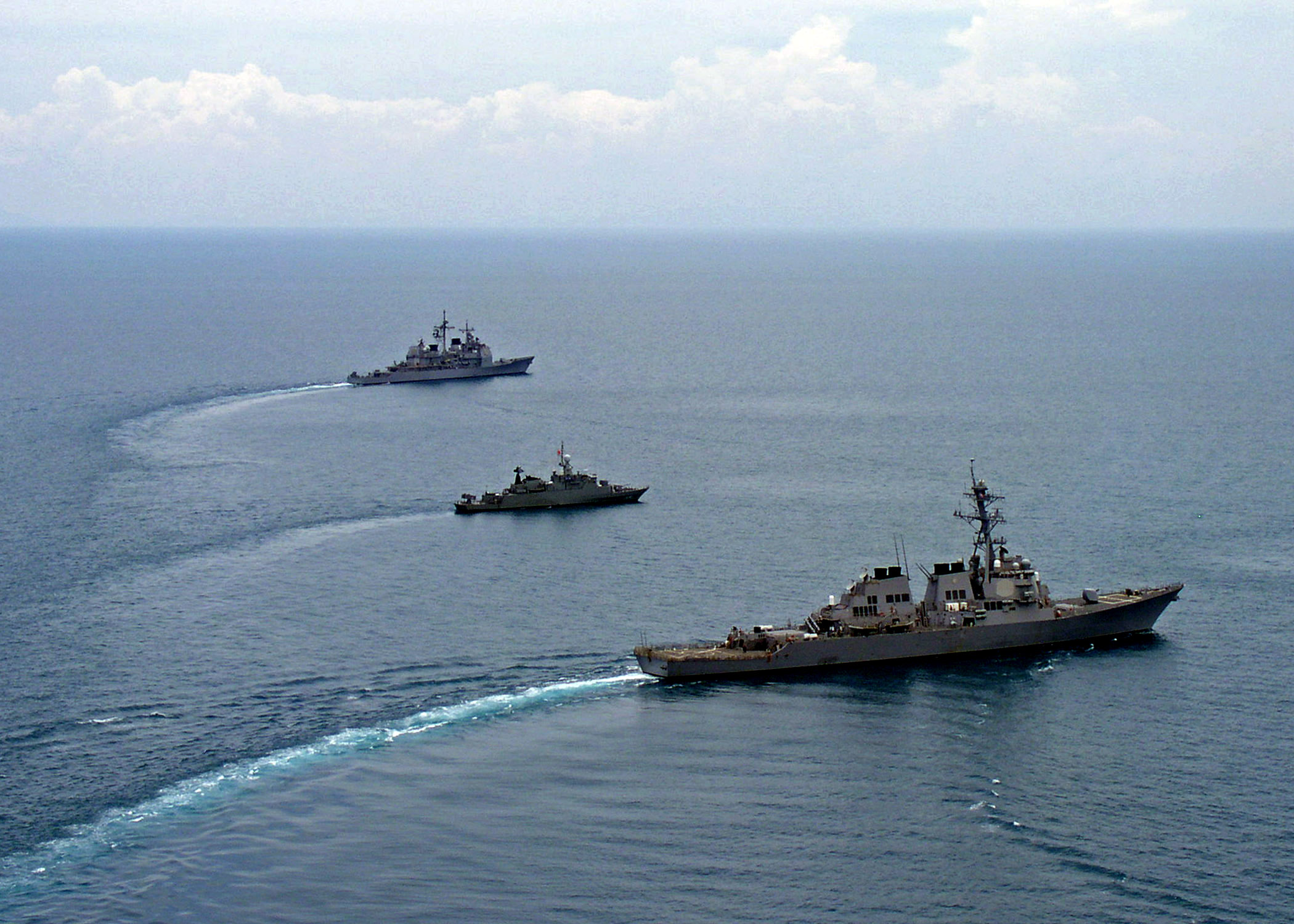UN Tribunal Rejects China's Claims
In a significant development, the UN International Tribunal for the Law of the Sea (ITLOS) at The Hague, Netherlands, ruled on July 12 that there was “no legal basis” for China’s expansive claims in the South China Sea (SCS). The UN tribunal stated that there was no historical or legal basis for China’s claim to around 90% of the SCS, demarcated by the “nine-dash line” (NDL) on Chinese maps.
The case against China at The Hague was brought by the Philippines in January 2013, less than a year after Chinese patrol vessels assumed control of the waters around Scarborough Shoal (SS), known as Huangyan Island in Chinese. The Shoal, which consists of rocks, reefs, and small islands, is located about 220 km (132 miles) from the Philippines, which claims that it falls within its 200 nautical mile Exclusive Economic Zone (EEZ), giving it the right to exploit the natural resources in this area.
On the other hand, China has consistently claimed all waters and islands falling within the so-called NDL, which was first officially published on a map by China’s Nationalist government in 1947, and has since been included in subsequent maps issued under communist rule. China, however, has so far not been able to produce any concrete historical or legal evidence to back its claim to the Scarborough Shoal. The NDL also includes the Parcel and Spratly Islands, which are claimed by several countries including Vietnam, Malaysia, and the Philippines.
China, like all the other states in the area except Taiwan, has signed and ratified the 1982 UN Convention on the Law of the Sea (UNCLOS), which lays down the parameters of the global maritime law, including jurisdiction over islands and other features in the seas and oceans. In terms of those parameters, China’s claim to SS was found to be untenable by the UN Tribunal at The Hague.
The Tribunal also rebuked China for constructing artificial islands in the SCS, causing “irreparable harm” to the marine environment, endangering Philippine ships, and interfering with Philippine fishing and oil exploration. Citing China’s construction of a large artificial island on an atoll known as “Mischief Reef,” the tribunal ruled that it was in Philippine waters. China has built a military airstrip, naval berths, and sports fields on the island.
Rejecting the ITLOS verdict, Chinese President Xi Jinping reasserted China’s claim to sovereignty over the SCS “since ancient times”. The Chinese Foreign Ministry said in a statement that the Tribunal’s decision “is invalid and has no binding force. China does not accept or recognise it”. China had also argued that the Tribunal had no jurisdiction in the matter, and had refused to participate in its proceedings.
The ITLOS verdict is very important as it pertains to the South China Sea, which provides 10 percent of the global fisheries catch, and carries $5 trillion in ship-borne trade. Half the world’s shipping tonnage traverses its sea lanes. The verdict could give the governments of Philippines, Brunei, Indonesia, Malaysia, Taiwan, and Vietnam more leverage in their maritime disputes with Beijing. China has been feverishly piling sand onto reefs in the SCS, creating seven new islets in the region and straining already tense relations with the countries mentioned above.
In a statement issued soon after the ITLOS verdict, India said that it had “noted” the ruling over China’s behaviour in the South China Sea. It expressed support for “freedom of navigation and overflight” in the SCS and asked all parties to show “utmost respect” for UNCLOS. It also called upon all states concerned to “resolve disputes through peaceful means without the threat or use of force.”
The ITLOS verdict presents an important opportunity which India must seize to strengthen its relations with Vietnam, Indonesia, Malaysia, Philippines, and other ASEAN countries, which have been victims of Chinese bullying and high-handed behaviour. These countries have been expecting Indian support for their positions, based on UNCLOS, on issues relating to the South China Sea.
India’s own ONGC Videsh Ltd.(OVL) has bought 100 percent stake for oil and gas exploration in Vietnam’s Block 128, which lies in an area in the SCS claimed by China. The Production Sharing Contract for the 7,058 sq. km. Block was originally signed by OVL with the Vietnamese Ministry of Planning and Investment in May 2006 and has been subsequently extended more than once.
In 2011, Beijing had warned OVL that its exploration activities off the Vietnam coast were illegal and violated China’s sovereignty, but the Indian company continued its operations. OVL has so far invested more than USD 50 million in the Block.
OVL should continue its activities in Block 128 in the South China Sea, undeterred by Chinese threats. Moreover, now that India has become a member of the Missile Technology Control Regime (MTCR), it should, without further delay, sell Brahmos cruise missiles to Vietnam, which has been asking for them for quite some time. In fact, India should sell Brahmos to all countries in the region which are interested in buying it, to deter Chinese adventurism. It should not develop cold feet, as it has sometimes done in the past.
India needs to talk to countries like China in the language that they understand. Otherwise, its message will be ignored.





